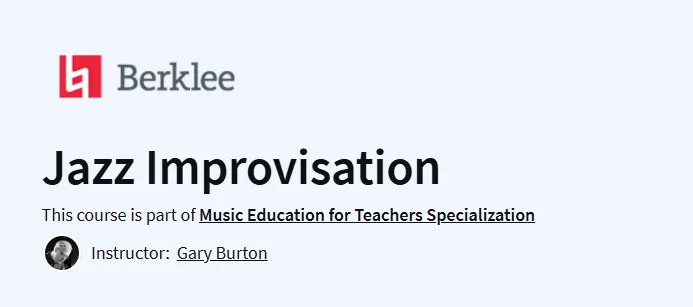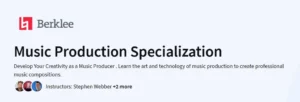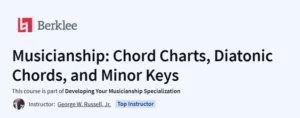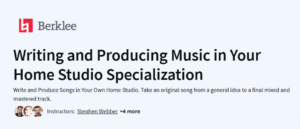What you will learn in Jazz Improvisation Course
- Fundamental jazz improvisation concepts
- Scale/chord relationship mastery
- Bebop language and phrasing
- Transcription analysis techniques
- Rhythmic displacement strategies
- Solo development frameworks
- Ear training for improvisation
Program Overview
Improvisation Foundations
⏱️ 2 weeks
- Covers chord-scale theory, guide tones, and basic jazz vocabulary.
- Includes ii-V-I progression exercises in all keys.
Bebop Language
⏱️ 2 weeks
- Focuses on chromatic approaches, enclosures, and classic bebop licks.
- Features Charlie Parker solo analyses.
Rhythmic Development
⏱️ 2 weeks
- Teaches syncopation, swing feel refinement, and metric modulation.
- Includes play-along tracks with different tempo feels.
Advanced Concepts
⏱️ 2 weeks
- Examines modal interchange, outside playing, and free improvisation.
- Features modern jazz artist case studies.
Get certificate
Job Outlook
- Professional value: Essential for jazz musicians
- Salary potential: 100500 per gig for skilled improvisers
- Industry demand: Core skill for session work
- Certification benefit: Berklee alumni network access
Specification: Jazz Improvisation
|
FAQs
- The course is taught by Gary Burton, a legendary jazz vibraphonist and educator from Berklee College of Music.
- Burton’s teaching brings decades of Berklee’s improvisation pedagogy into an accessible online format.
- Offered via Coursera and part of the Music Education for Teachers Specialization, it carries strong academic credibility.
- Over 73,000 learners have enrolled, with ratings averaging 4.8 out of 5—indicating high satisfaction.
- Reviews from music publications and students describe its quality: “great value for money” and an effective motivator for practice.
- The course runs through six modules, covering everything from improvisation foundations to advanced phrasing and rhythm tools.
- You’ll learn key concepts including:
- Improvisation as a language (storytelling, vocabulary, grammar)
- The Improviser’s Vocabulary (scales, modes, chord scale relationships)
- Real-time scale choices
- Guide tones and guide-tone lines
- Harmonic motion and solo development frameworks
- The course also emphasizes rhythmic displacement and ear training for improvisation.
- Designed for approximately 15 hours of engagement—typically completed in 1 week at 10 hours per week.
- Language support includes multiple subtitles (e.g., Spanish, German, Chinese), broadening accessibility.
- You do need to be proficient on an instrument—having basic playing ability is a prerequisite. is helpful but not strictly required; familiarity with concepts like key signatures, chord scales, and circle of fifths is recommended.
- If you’re lacking that foundation, Coursera suggests taking the Developing Your Musicianship course first.
- Reviewers have noted that a solid grasp of scales and modes is beneficial—many drop out early if they lack scale fluency.
- The course is labeled as Intermediate level—you’ll need more than beginner skills to keep pace comfortably.
- Course assignments involve tasks like analyzing solos, choosing scales in real time, and submitting your own improvisations (e.g., over “500 Miles High”).
- You’ll also engage in peer assessment, listening to and reviewing other students’ performances. Be prepared for candid feedback—mostly positive, but sometimes blunt.
- Quizzes may be easy to repeat for full marks, but the real learning is in the practical playing exercises and reflection.
- Additional supportive forums and play-along tracks enhance practice and help build community.
- The structure includes three engaging phases: submission (doing your work), evaluation (peer reviews), and results (grades)—all reinforcing reflective learning.
- Yes—you’ll earn a shareable certificate of completion that can be added to your CV or LinkedIn profile.
- You can audit the course for free to access most materials. To submit assignments and earn the certificate, you’ll need to purchase the Certificate experience.
- Financial aid and a possible Free Trial are available if the certificate cost is a barrier.
- Flexibility is built in—with resettable deadlines and pacing that fits your schedule.
- Even if opting not to produce a final improvisation, access to remaining course content still offers strong learning value.





